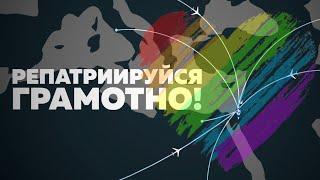Комментарии:

The best 0 Delay slow motion MAP: 3896-9538-6391
Ответить
Tweaka fn is coming
Ответить
Tweeka 2.0💀
Ответить
is simple edit
Ответить
I was gonna say "Simple edit" but this was made 2 years ago
Ответить
What kind of simple game do u use😂
Ответить
The struggles of being a console player vs this 😭🙏
Ответить
HACKER
Ответить
He sucks😊
Ответить
TOUCH SOME GRASS
Ответить
What in the simple edit 😅
Ответить
What the heck is that?
Ответить
What the macros
Ответить
Good luck btw this person used a creativ map and put slow motion with simple edit scroll wheel thats why it's in replays
Ответить
POV how good bro thinks he’s gonna be when he gets a PC
Ответить
fake?.
Ответить
Pov trying simple edit😂
Ответить
Macro for sure
Ответить
GUYS IT IS A SLOWED DOWN MAN HE SPED UP THE CLIP WHILE IN REPLAY MODE
Ответить
POV: simple edit paired with 0 ping and 360 fps
Ответить
For those who didint know
Grass: The Essential Green Carpet of the Earth
Grass is one of the most common and important plants on Earth. It covers vast landscapes, from lush meadows to rolling hills, from suburban lawns to dense pastures. Despite its simplicity, grass plays a vital role in the environment, agriculture, and even human culture. In this article, we will explore the characteristics of grass, its ecological importance, its role in human society, and the challenges it faces due to environmental changes.
---
What is Grass?
Grass belongs to the family Poaceae, which consists of over 12,000 species. Some of the most well-known types of grass include wheat, rice, maize, barley, and oats, which are essential for human consumption. Other varieties, such as fescue and Bermuda grass, are commonly used for lawns and sports fields.
One of the defining characteristics of grass is its ability to grow continuously from the base rather than the tip. This allows it to survive being grazed by animals or mowed by humans. Its fibrous root system helps it absorb water efficiently and prevent soil erosion. Grass species can be found in nearly every climate, from cold tundras to hot tropical regions.
---
The Ecological Importance of Grass
Grasslands, such as prairies and savannas, are among the most important ecosystems on Earth. They provide habitat for a diverse range of species, including large herbivores like bison, zebras, and antelope, as well as predators like lions and wolves. Birds, insects, and small mammals also rely on grasslands for food and shelter.
Additionally, grass plays a critical role in the carbon cycle. It absorbs carbon dioxide from the atmosphere and helps store carbon in the soil. This makes grasslands a key player in mitigating climate change. Grass also improves soil health by preventing erosion, maintaining moisture levels, and adding organic matter as it decomposes.
Another important ecological function of grass is its role in the water cycle. Grass helps regulate water flow by absorbing rainwater and reducing runoff, which prevents flooding and maintains groundwater levels. This is especially crucial in areas prone to drought.
---
Grass and Human Society
Humans have relied on grass for thousands of years. The development of agriculture, which is largely based on grass species like wheat, rice, and corn, allowed civilizations to grow and flourish. Without these crops, human history would have been very different.
Grass is also essential for livestock farming. Cows, sheep, and other grazing animals depend on grass for food, and in turn, they provide humans with meat, milk, and wool. Grass-fed livestock is often considered healthier than grain-fed alternatives, as it leads to leaner meat with higher nutritional value.
Beyond agriculture, grass has a strong cultural and recreational significance. Many sports, including soccer, golf, rugby, and cricket, are played on grass fields. Parks and gardens, which provide relaxation and recreational space for people, are often covered with well-maintained grass. The aesthetic appeal of a green lawn is highly valued in many societies, especially in suburban areas where homeowners take great pride in their lawns.
---
Challenges Facing Grass
Despite its resilience, grass faces numerous challenges due to environmental changes and human activities. One of the biggest threats is climate change. Rising temperatures and changing rainfall patterns can affect the growth of grass, leading to desertification in some areas.
Overgrazing by livestock is another major issue. When too many animals feed on grasslands without giving the plants time to recover, the land becomes degraded. This can result in soil erosion, loss of biodiversity, and reduced agricultural productivity.
Urbanization also poses a threat to grasslands. As cities expand, natural grasslands are being converted into concrete jungles, reducing the available green spaces. This has negative consequences for air quality, temperature regulation, and biodiversity.
Additionally, the excessive use of chemical fertilizers and pesticides on lawns and agricultural fields can harm the environment. These chemicals can seep into the soil and water sources, affecting both plant and animal life.
---
The Future of Grasslands
To ensure the survival of grasslands and their benefits, sustainable practices are essential. Farmers can adopt rotational grazing methods, which allow grass to recover between grazing periods. Planting native grass species instead of invasive ones can also help maintain biodiversity and ecosystem balance.
Urban planners and homeowners can contribute by creating more green spaces and reducing the use of harmful chemicals on lawns. Allowing grass to grow naturally, rather than maintaining artificial lawns that require excessive watering and fertilizers, is a more sustainable approach.
Conservation efforts, such as protecting natural grasslands and restoring degraded areas, are also crucial. Governments and environmental organizations around the world are working to preserve these valuable ecosystems.
---
Conclusion
Grass may seem simple, but it is an essential part of life on Earth. It supports ecosystems, sustains agriculture, and enhances human well-being. However, it also faces significant threats from human activities and climate change. By adopting sustainable practices and valuing the role of grass in the environment, we can ensure that this vital plant continues to thrive for generations to come.

bro mastered simple edit
Ответить
What’s the song
Ответить
Simple edit + Mouse wheel
Ответить
Best Editer❌
Best Macro user✅👌

Whats the color of grass if you get it roght i will drop 50 bucks on the spot
Ответить
Macros
Ответить
Setting plzzzzzzz
Ответить
In 30 years thats are noobs😂
Ответить
macros
Ответить
Tip 1 that's macro
Ответить
Simple edit on😂
Ответить
Sped up asf lmao
Ответить
Scroll wheel simple edit
Ответить
I can do 200 those in 30 seconds
Ответить
That's sped up
Ответить
This guy is using macros or somthing
Ответить
Simple edit with scroll wheel would def help me
Ответить
Macro
Ответить
Macros and slow mo are afraid of you
Ответить
I know how long it took me that’s to build the biggest tower. It took one minute. I build one platform in 10 when I left for a minute I was finished already.
Ответить
That slow motion looks good bro
Ответить
Um i think it might be speed up those how agree
👇

That’s macros or he’s just better than Peterbot
Ответить
Doesn’t he use a macro?😮😅
Ответить
tweaka edit:are you sure about that?
Ответить
Grass is a type of small, green, herbaceous plant that typically has narrow leaves and grows in clusters. It is a member of the family Poaceae (also known as Gramineae). Grasses are found in a wide variety of ecosystems, including lawns, meadows, prairies, and fields. They are commonly used as ground cover in landscaping, and many species of grass serve as food for grazing animals. Grasses also play an essential role in the environment by preventing soil erosion and producing oxygen.
Ответить
how do you do that
Ответить
It's either macro or hes binding the mouse wheel to edit anything he looks at whilst using simple edit
Ответить
Alright forget about Tweekafn
Ответить


























